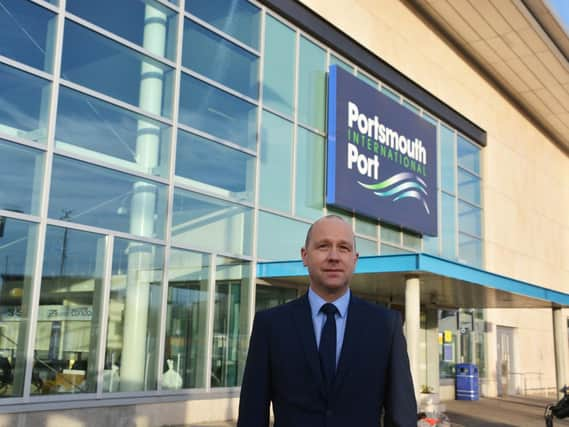Portsmouth’s port announced as new route for endangered animals and plants if no Brexit deal with EU is announced


If the UK fails to agree a deal with the EU, protected animals and plants that currently move freely between the EU and UK would need a permit to travel – and could only do so through designated ports.
Portsmouth port has now been confirmed as being on the list as the government takes action to prepare for the possibility of a no-deal Brexit.
Advertisement
Hide AdAdvertisement
Hide AdIt comes after fears the current system would not be able to cope, leading to the government increasing the number of entry and exit points for goods – known as CITES (the Convention on International Trade in Endangered Species of Wild Fauna and Flora).
Currently there are just 10 ports and airports for CITES trade with countries outside the EU.
CITE is an international agreement between governments which aims to protect wild animal and plants species. In total, it protects more than 35,000 species of animals and plants and also includes musical instruments and dried herbs.
Nearly all CITES species, apart from those with the highest level of protection, can be traded and transported freely within the EU. The UK will continue to be a member of CITES after Brexit, even in the event of no-deal.
Advertisement
Hide AdAdvertisement
Hide AdIn the event of no-deal, all movement of species controlled under CITES between the UK and the EU would need to follow the same processes as those currently in place for movement between the UK and non-EU countries.
Environment minister Thérèse Coffey said: ‘The CITES convention plays a key role in protecting endangered species and we will continue to uphold it after we leave the EU, as part of our pledge to be the first generation to leave the environment in a better state than that in which we found it.
‘This government has been absolutely clear on our commitment to deliver the Brexit deal negotiated with the EU. But the government is preparing for any eventuality.
‘That’s why we are taking the responsible step of ensuring people and businesses understand the potential impacts of no deal – such as the transport of protected goods and animals between the UK and the EU – to help minimise any potential disruption.’
Advertisement
Hide AdAdvertisement
Hide AdBusinesses or individuals trading in or moving CITES-listed species outside the UK would need to check requirements with the intended import or export country on the Global CITES website. They should then apply to the Animal and Plant Health Agency (APHA) for a CITES permit or request and complete an import notification form.
In addition, CITES animals and plants would only be able to travel or be transported through certain designated ports, meaning individuals and businesses may be more restricted in the transport routes they can use.
Busy routes (for example Eurotunnel, Dover and Holyhead) are not currently proposed for designation. This is to avoid potential delays at these ports as they experience large volumes of traffic passing through.
Businesses or individuals who regularly use these routes may need to make alternative arrangements as there will be no facilities at these ports for CITES permits to be stamped.
If there is a no-deal, the designation of CITES ports would be reviewed as more data is gathered post Brexit when the actual levels of CITES trade between the UK and the EU is more accurately known.